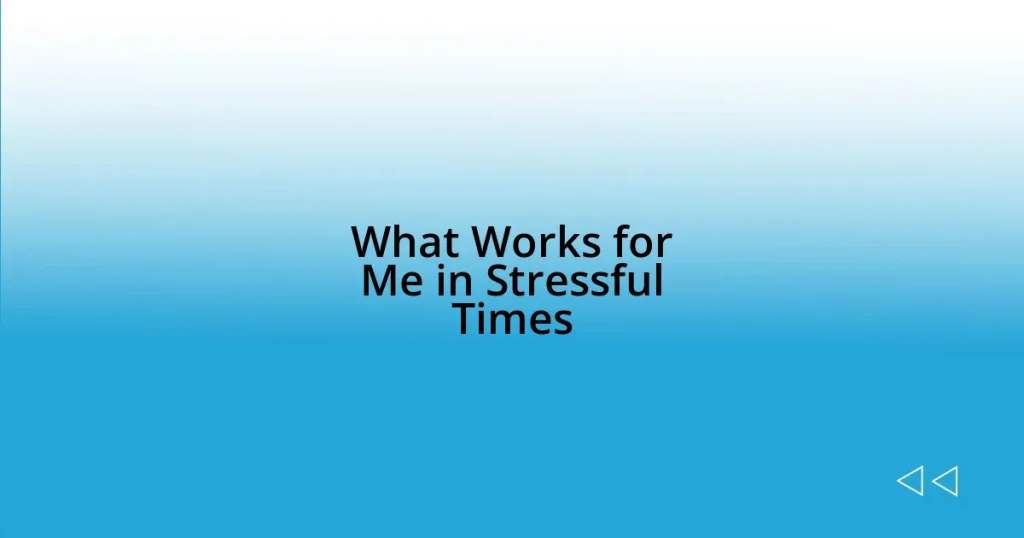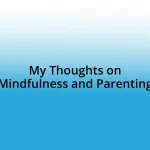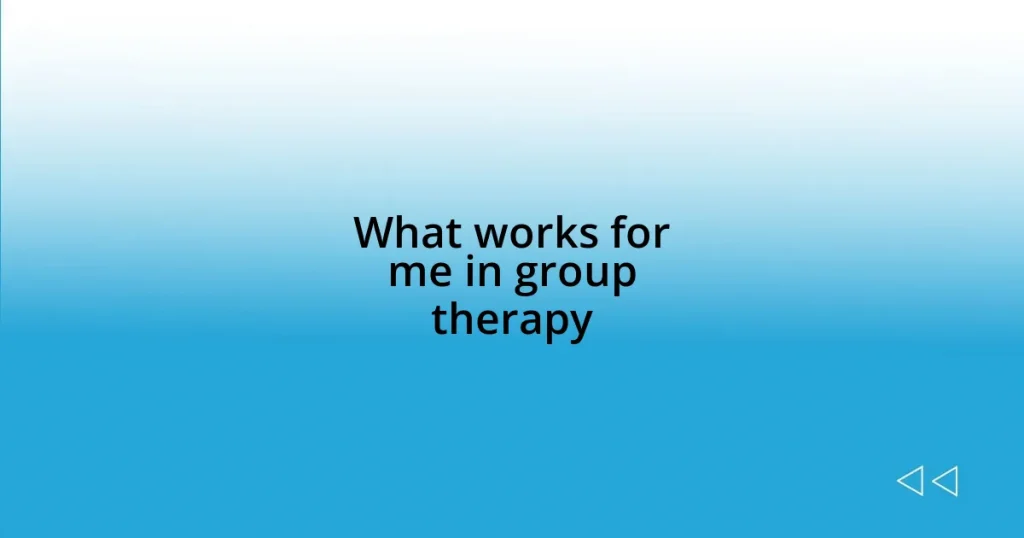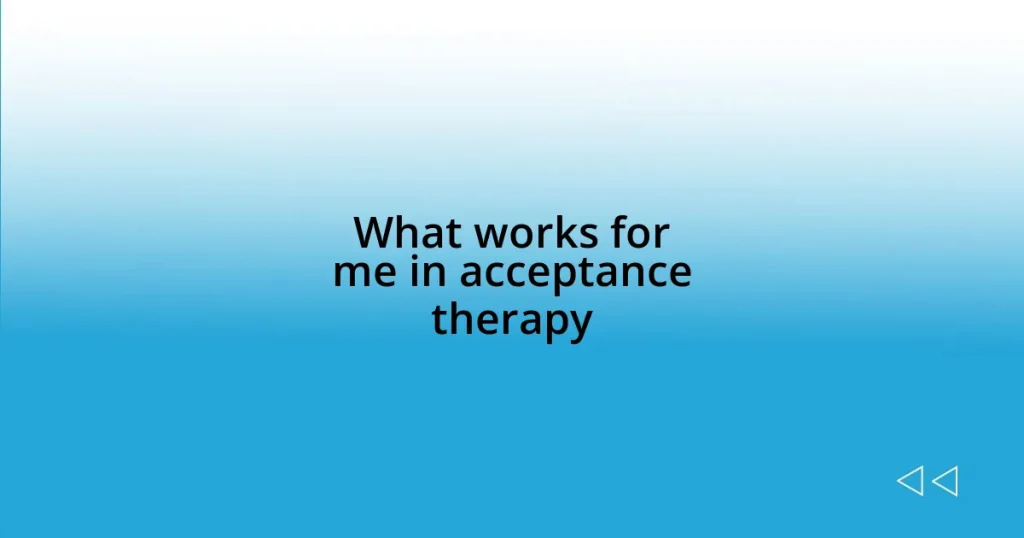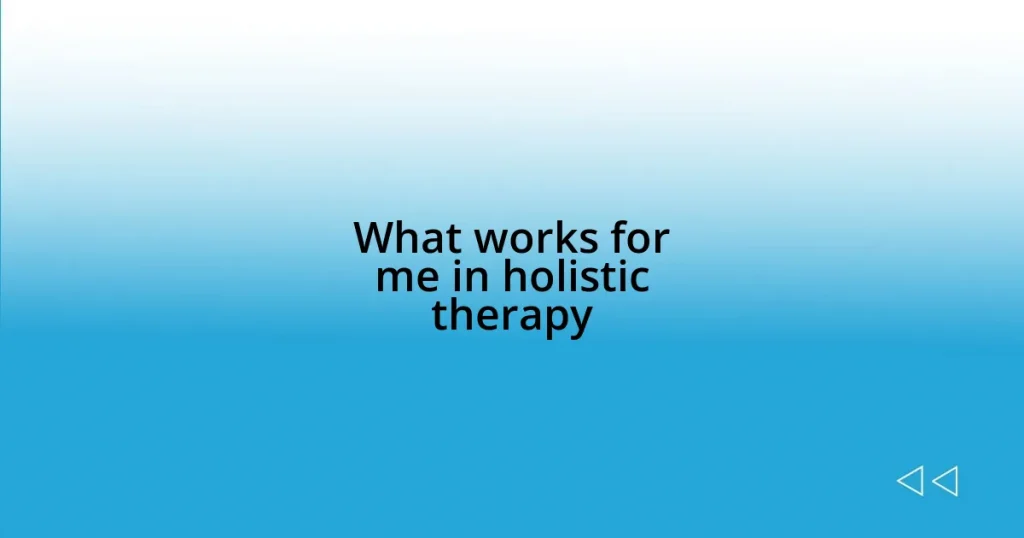Key takeaways:
- Stress manifests differently for everyone; recognizing personal triggers is essential for effective management.
- Effective coping strategies include deep breathing, journaling, and exercise, which help to calm the mind and process emotions.
- Building a support system and connecting with others facing similar challenges can provide comfort and new perspectives during stressful times.
- Evaluating the effectiveness of stress management strategies regularly allows for adjustments and acknowledgment of personal growth.
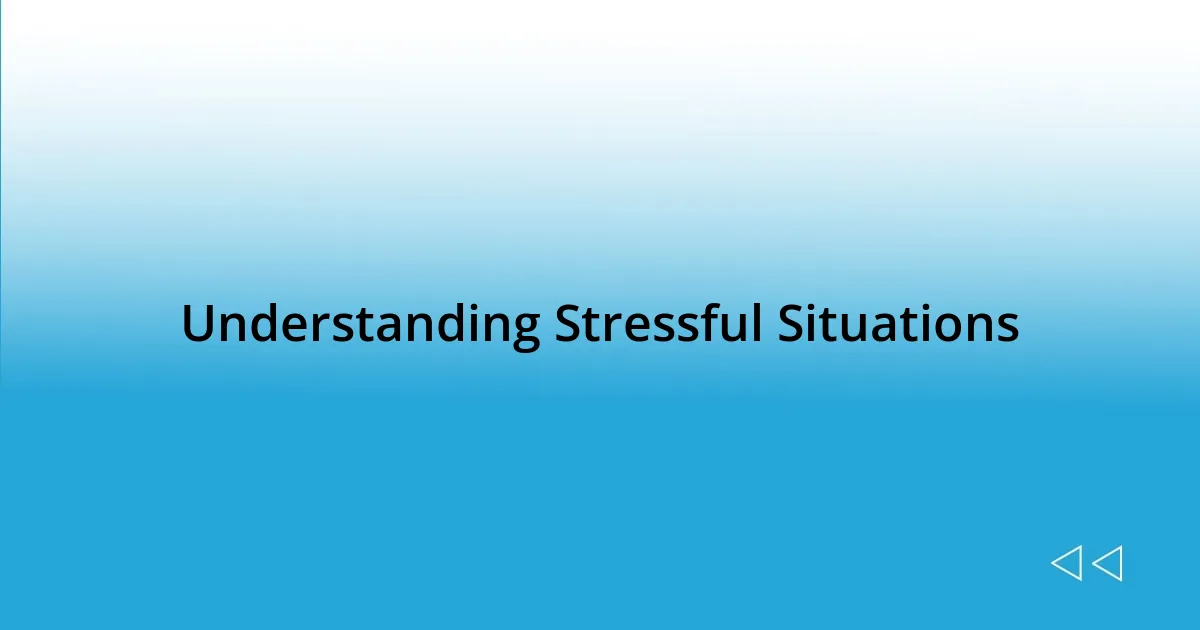
Understanding Stressful Situations
Stressful situations can feel overwhelming, often catching us off guard. I remember a time when I faced a tight deadline at work, and the anxiety was almost palpable; my heart raced, and my mind seemed to spin in circles. It made me question – why do we often feel like we’re drowning when, in reality, we can learn to float?
Understanding stress is crucial because it manifests differently for everyone. Some people might become irritable or withdrawn, while I tend to over-prepare or seek out reassurance. Have you noticed how stress can lead us to react in ways we later regret? I’ve learned that recognizing these patterns is the first step in managing our stress more effectively.
It’s also important to remember that the triggers for stress don’t always stem from monumental life changes. Sometimes, it’s the small, daily nuisances that accumulate and push us past our limits. Just last week, I got stuck in traffic, and instead of simply venting my frustration, I took a moment to breathe and remind myself that there’s always a bigger picture. How do you approach those everyday stressors? It’s fascinating to think about how much control we can actually regain by shifting our perspective.
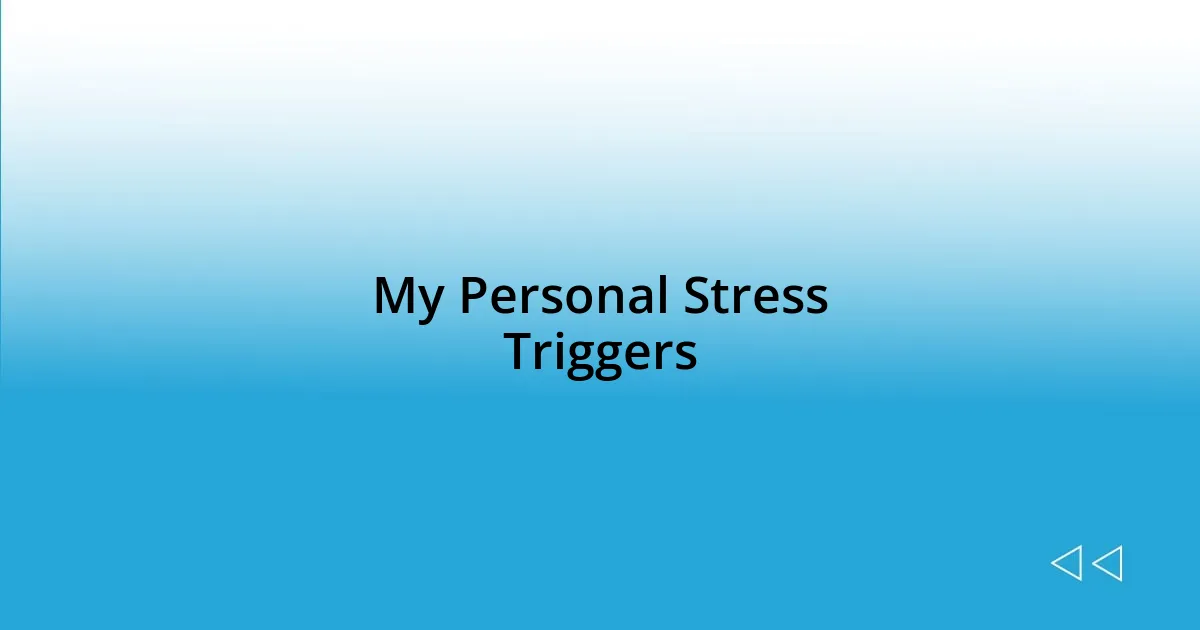
My Personal Stress Triggers
I’ve come to realize that certain situations consistently trigger my stress. For example, when I find myself in large crowds, my heart starts to race just at the thought of not having enough personal space. There’s something about the overwhelming noise and the feeling of being lost in a sea of strangers that really gets to me.
Here are some of my personal stress triggers:
- Tight deadlines: The pressure to perform quickly can leave me paralyzed with anxiety.
- Confrontations: I often avoid difficult conversations, which only amplifies my stress when I have to face them.
- Unexpected changes: Whether it’s a last-minute meeting or a schedule shift, these surprises throw me off balance.
- Social gatherings: While I enjoy connecting with others, the anticipation can be exhausting.
Recognizing these triggers has been a journey for me; it’s almost like learning a new language. Now, when I feel that familiar knot in my stomach, I pause and ask myself what’s really happening underneath that stress. It’s fascinating how awareness can start to shift my response in these moments.
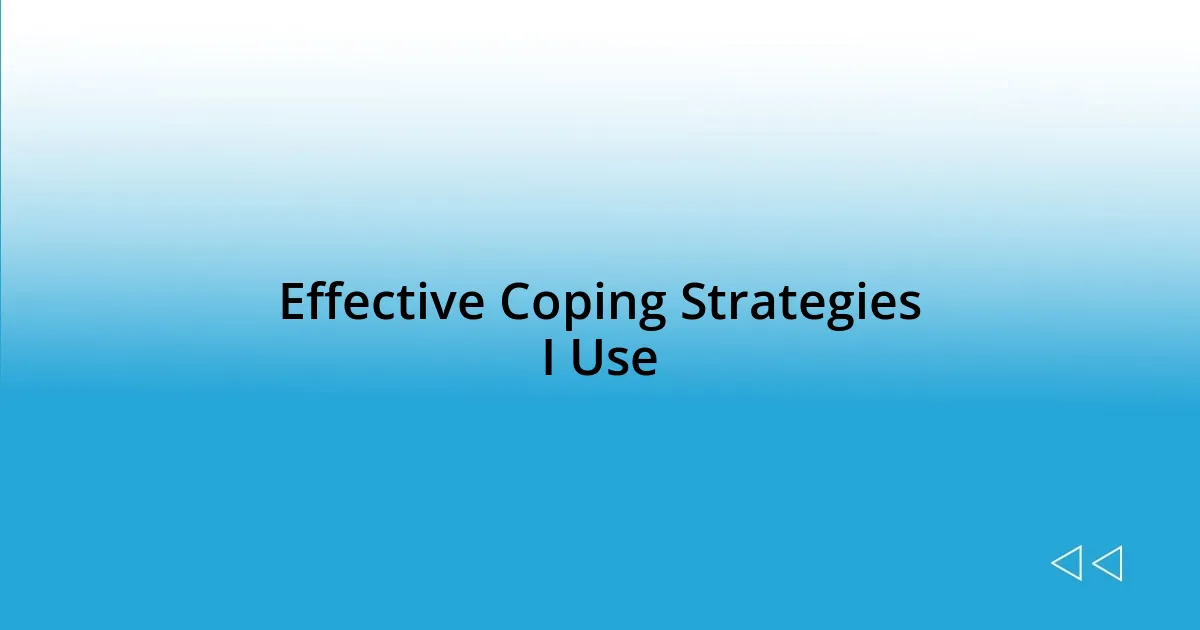
Effective Coping Strategies I Use
I’ve developed a few effective coping strategies over the years that really help me manage stress. One of my go-tos is deep breathing. Whenever I feel my heart start racing, I take a step back and focus on my breath. I’ll inhale deeply for a count of four, hold it for a moment, and then exhale for six. It’s amazing what just a few cycles of controlled breathing can do to calm my mind. Have you tried it? It’s like hitting the refresh button on my nervous system.
Another strategy I find incredibly beneficial is journaling. After a particularly stressful day, I sit down with my notebook and pour out my thoughts. It’s my way of processing everything that’s swirling around in my head. I find it therapeutic to put pen to paper, reflecting on what made me anxious and how I might handle those situations differently next time. Just last month, I wrote about a stressful family gathering that left me feeling drained; sorting through my feelings on the page helped me find clarity and release.
Lastly, exercise is non-negotiable for me. Whether it’s a brisk walk in the morning or a dance class in the evening, moving my body does wonders for my mental state. There’s something liberating about those endorphins kicking in after a good workout. I once faced a particularly tough week at work, and a high-energy dance class became my outlet. I left the class feeling lighter, empowered, and ready to tackle whatever challenges lay ahead. How do you find ways to incorporate movement into your routine?
| Strategy | Benefits |
|---|---|
| Deep Breathing | Calms the nervous system and reduces immediate anxiety. |
| Journaling | Helps process emotions and gain clarity from stressful situations. |
| Exercise | Boosts endorphins and promotes overall mental well-being. |
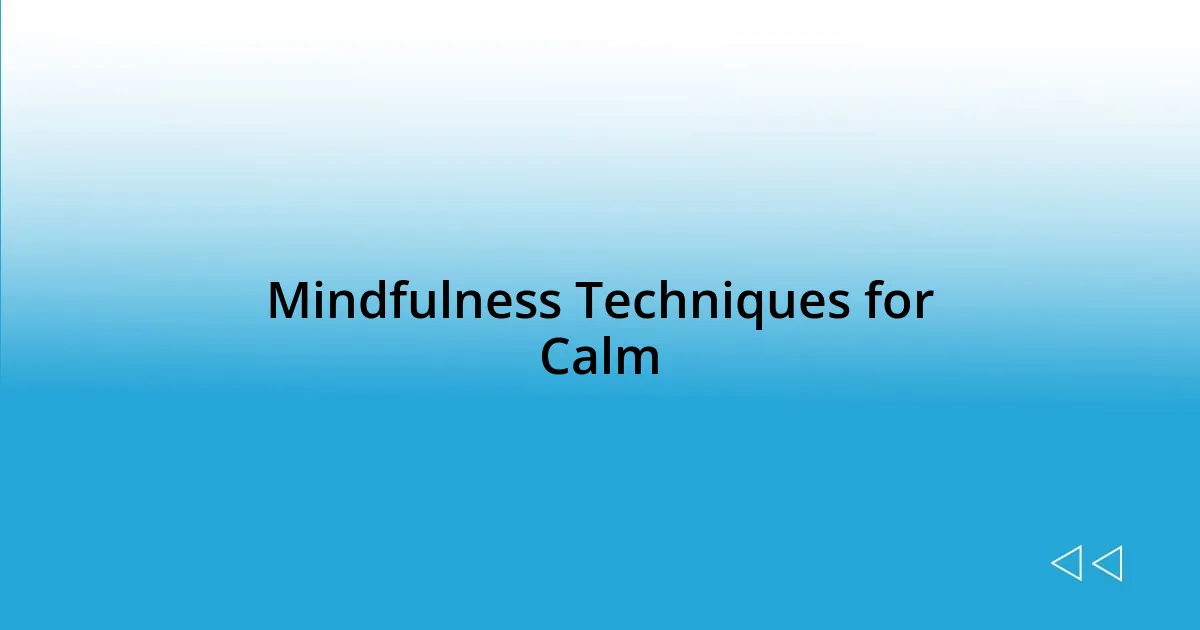
Mindfulness Techniques for Calm
When I find myself overwhelmed, one mindfulness technique that really brings me back to center is grounding. I often take a moment to focus on my surroundings, identifying five things I can see, four I can touch, three I can hear, two I can smell, and one I can taste. This practice helps shift my attention away from the storm of thoughts in my head. Have you ever tried it? The immediate sense of calm I experience lets me feel more in control.
Another method I swear by is the body scan meditation. Lying down or sitting comfortably, I consciously relax each part of my body, starting from my toes and working my way up to my head. During a particularly stressful week, I dedicated a few minutes each night to this practice; those quiet moments transformed my evenings into a sanctuary of peace. It’s incredible how tuning into your body can reveal tension you weren’t even aware of.
Lastly, I can’t overlook the power of mindful walking. It may sound simple, but the act of walking while fully aware of each step can be profoundly calming. I remember feeling anxious before a big presentation, so I took a short stroll around my neighborhood, focusing solely on my footsteps. That rhythmic movement and the fresh air worked wonders in clearing my mind. Have you ever found that stepping away from a problem can help you see it more clearly? I certainly have!
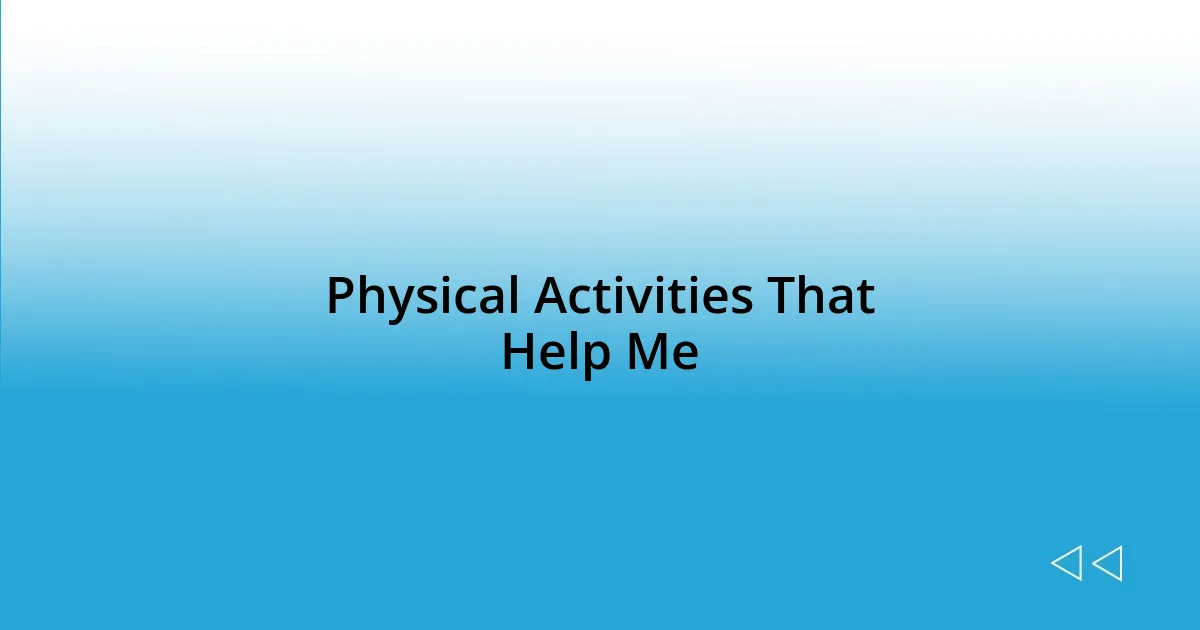
Physical Activities That Help Me
When I need a boost during stressful times, I often turn to yoga. Practicing a few poses not only stretches my muscles but also quiets my racing thoughts. I recall one particularly tense afternoon, and I unrolled my mat in my living room, flowing through sun salutations. By the end of it, I felt like I was floating, a serene calm enveloping me as the day’s chaos gradually faded away. Have you ever tried using movement to ground yourself?
On days when I feel restless, running becomes my sanctuary. I lace up my shoes and hit the pavement, letting the rhythm of my feet set the pace for my thoughts. Recently, I tackled a local trail where nature surrounded me—it was exhilarating. Each step was an escape from my worries; I could feel my heart pumping, and with every mile, I felt more liberated. Isn’t it fascinating how simply moving outdoors can shift your perspective?
Sometimes, I’ve found that team sports ignite a sense of joy that other activities can’t. Last spring, I joined a local softball league, and it turned out to be a game changer for my stress levels. Being out there with others, laughing at our mishaps and celebrating small wins, created an environment that was both fun and refreshing. The camaraderie and shared excitement kept my mind off lingering anxieties. Have you considered trying a group activity to uplift your spirits?
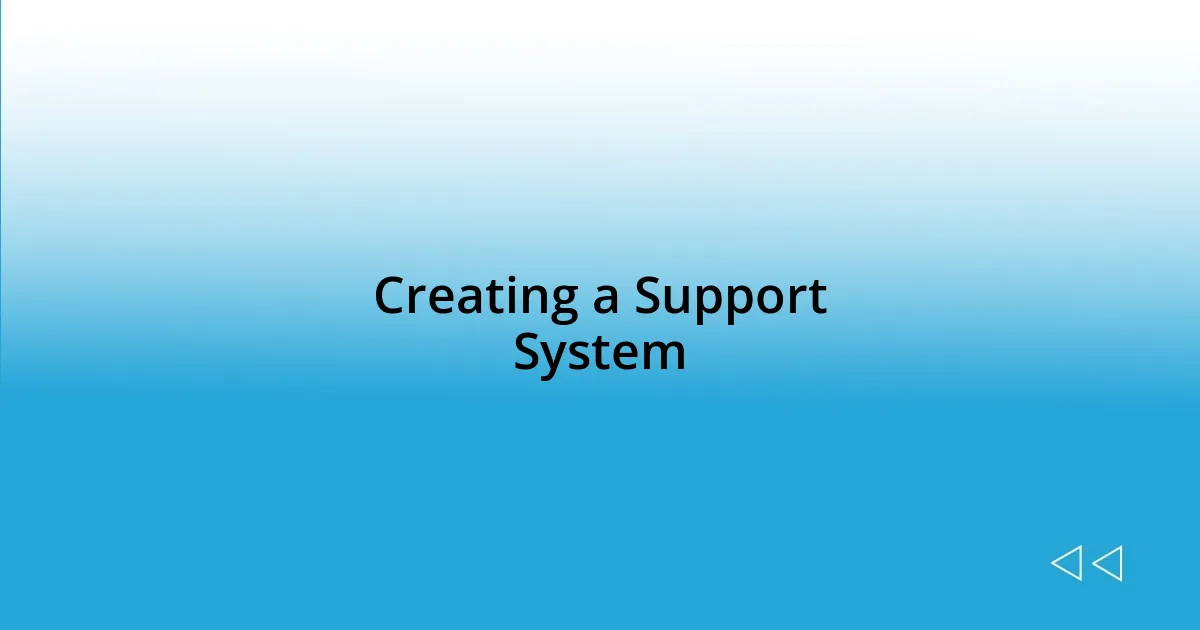
Creating a Support System
Building a support system has been a game changer for me in stressful times. I remember feeling particularly isolated during a tough period, so I reached out to friends and family to share my struggles. Opening up not only strengthened our connections but also provided me with different perspectives that lightened my emotional load. Have you thought about who in your life could be a source of support when stress hits?
I’ve learned that creating a balance in my support system is crucial. While I cherish my close friends, I also find value in connecting with others who share similar challenges. For instance, joining a local stress management group allowed me to meet individuals who understood what I was going through. Sharing our experiences and coping strategies created a sense of community that lifted my spirits immensely. Have you considered expanding your circle to include groups or classes where you can connect with others?
Lastly, it’s important to remember that support can come in many forms. Sometimes, it’s just a matter of knowing who to call or text when I need to vent. I have a friend who always knows how to make me laugh, and in moments of stress, a quick chat with her can work wonders. Reflecting on my experiences, I realize that a simple phone call can be an instant remedy for anxiety. Have you identified those special people in your life who can make the weight of stress feel a bit lighter?
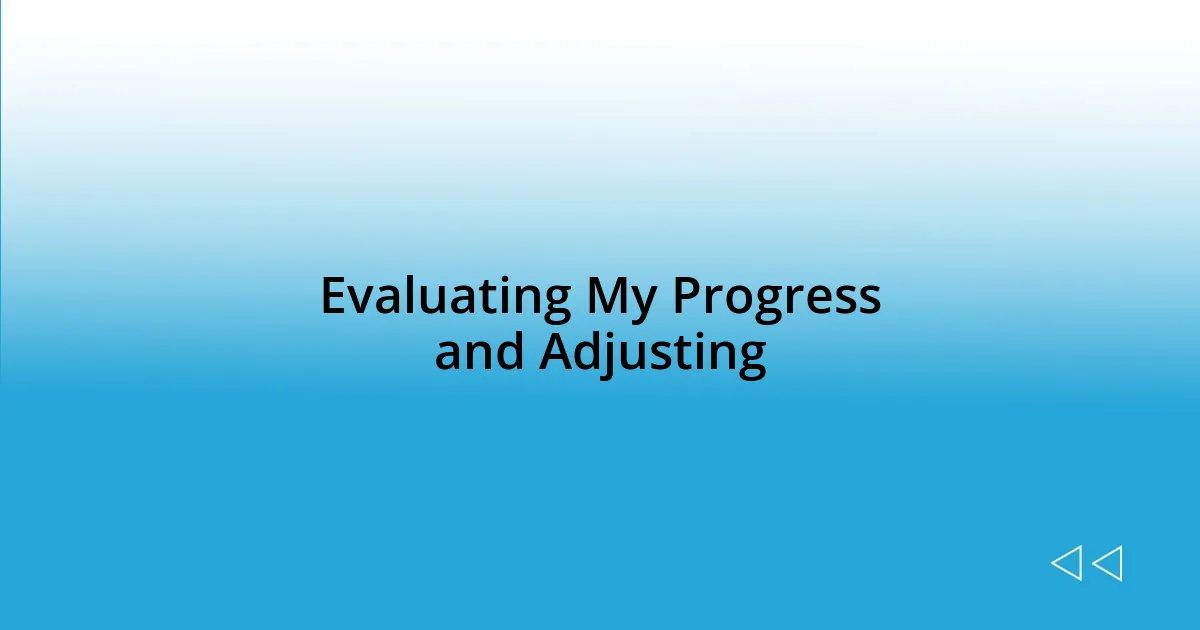
Evaluating My Progress and Adjusting
Evaluating my progress in handling stress is something I’ve come to value deeply. I often take time to reflect on how my stress management strategies are working for me. For instance, after a particularly challenging week, I’ll sit down with a journal and write out what has helped me cope and what hasn’t. It’s as if examining my thoughts on paper gives me clarity, allowing me to see patterns and recognize my growth. Have you tried tracking your feelings after implementing different strategies?
I remember a period when I was overwhelmed by work demands, and I relied heavily on deep breathing techniques. While this method provided immediate relief, over time I noticed it didn’t fully address my underlying stressors. That realization pushed me to adjust my approach, adding in mindfulness practices that enriched my coping toolkit. I think embracing the idea of flexible strategies is key. What changes have you made when certain methods no longer served you?
As I evaluate my progress, it’s also important to celebrate the small victories. Recently, I achieved a milestone in managing my anxiety by recognizing when I needed a break before things became unmanageable. Acknowledging this shift in awareness motivates me to keep refining my techniques tailored to my evolving needs. It’s empowering to recognize growth, isn’t it? How often do you pause to appreciate the steps you take toward better mental health?











